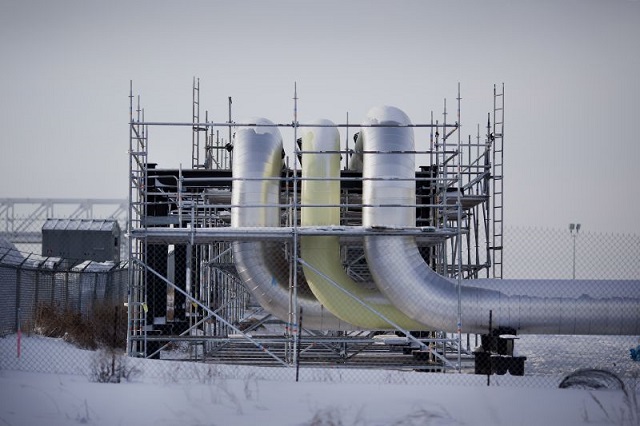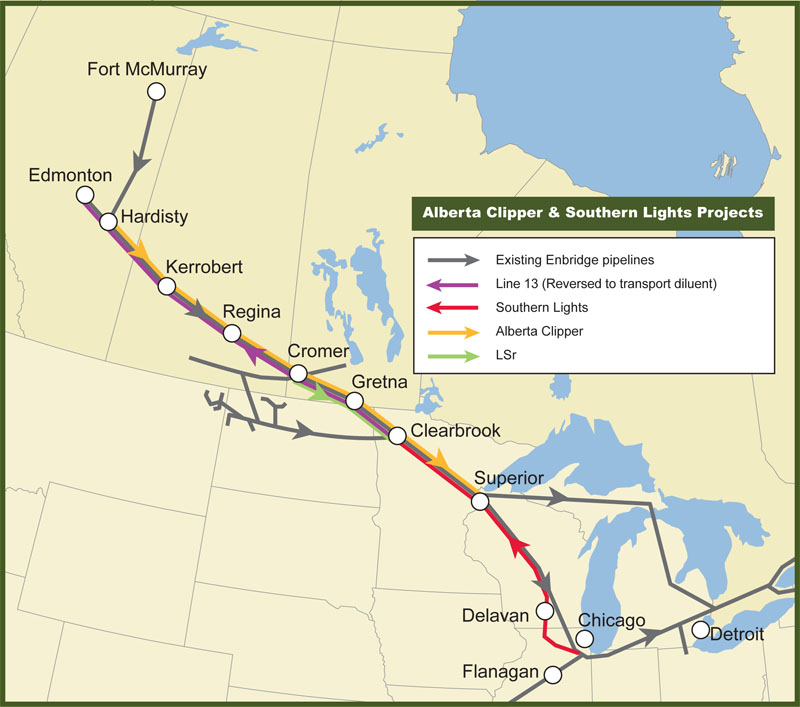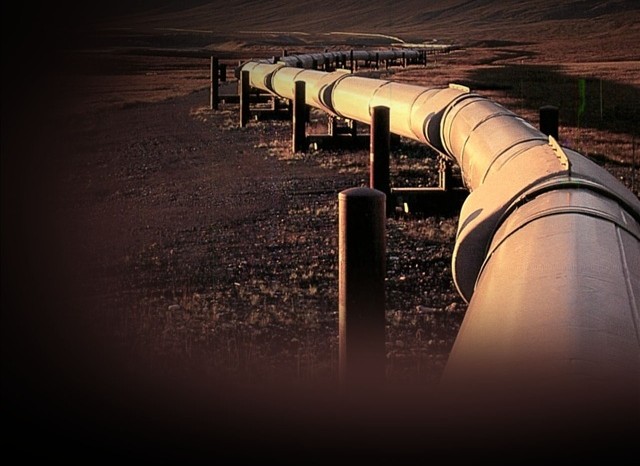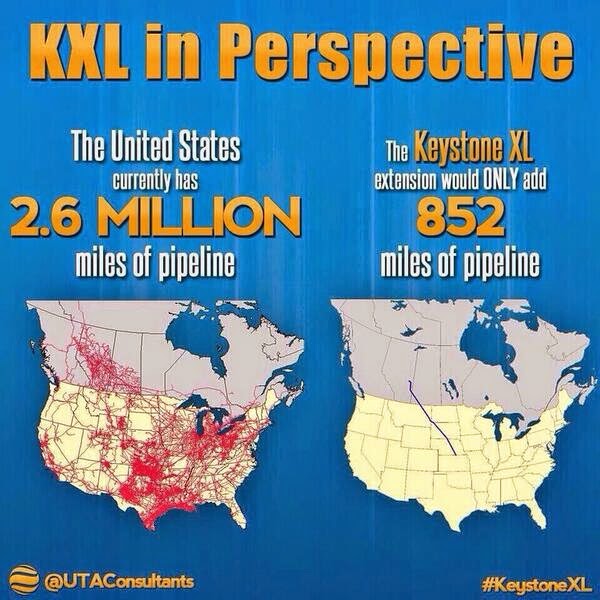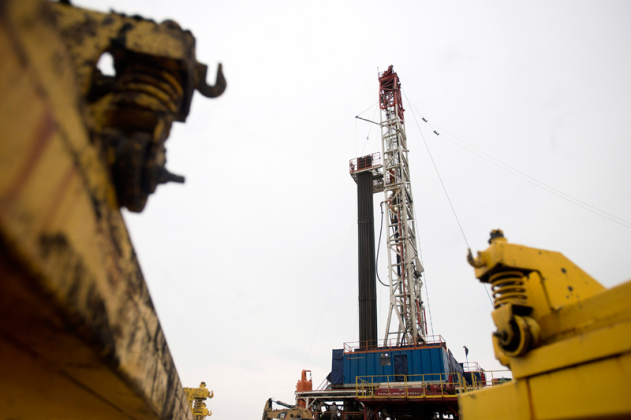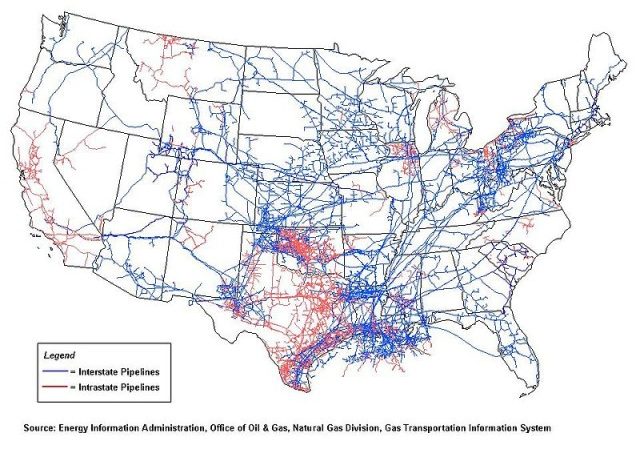WATCH: Biden Jeered By Anti-Pipeline Protesters in Virginia
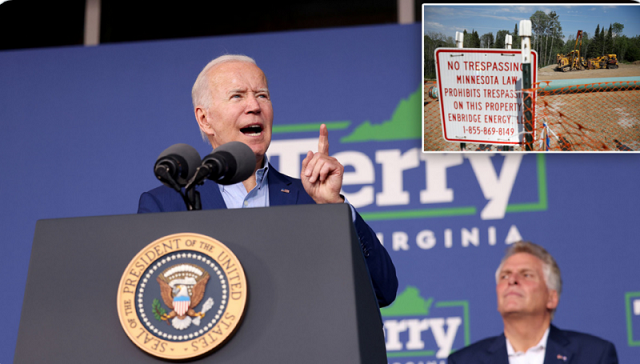
https://twitter.com/AndrewSolender/status/1418726936470294532?ref_src=twsrc%5Etfw%7Ctwcamp%5Etweetembed%7Ctwterm%5E1418726936470294532%7Ctwgr%5E%7Ctwcon%5Es1_&ref_url=https%3A%2F%2Fgellerreport.com%2F2021%2F07%2Fbiden-jeered-by-anti-pipeline-protesters-in-virginia.html%2F
America returning the middle finger the Demo-communists have been giving the American people.
“No, no, no, no. Let ’em talk. That’s OK. Look, this is not a Trump rally. Let ’em holler. No one’s paying attention.”
Spoken like a true autocrat.
Biden fends off anti-pipeline protesters in Virginia
President Biden’s Friday night stump speech in Virginia was interrupted by anti-pipeline protesters — leading the commander-in-chief to tell his audience to ignore the hecklers.
By: NY Post, July 24, 2021:
Biden was about two minutes into his remarks at an Arlington rally for Virginia Democratic gubernatorial candidate Terry McAuliffe when a group of people began yelling “Stop Line 3!” referring to a controversial oil pipeline project in northern Minnesota.
The rest of the crowd attempted to drown out the protesters by booing and chanting “Let’s go, Joe!” as the president tried to restore order.
“That’s OK, that’s all right,” Biden said. “No, no, no, no. Let ’em talk. That’s OK. Look, this is not a Trump rally. Let ’em holler. No one’s paying attention.”
The president spoke before an enthusiastic and largely unmasked crowd of around 3,000 people in support of McAuliffe, a longtime Democratic party heavyweight who is seeking another term as Virginia’s governor. McAuliffe previously held that office from 2014 to 2018. Under Virginia law, governors cannot run for a second consecutive term.
McAuliffe is favored to defeat his Republican opponent, private equity executive Glenn Youngkin. While the race is seen as competitive, the rapid growth of northern Virginia’s Washington, DC suburbs has tipped the commonwealth into the reliably Democratic column. No Republican presidential candidate has won Virginia since George W. Bush in 2004 and the last GOPer elected governor was Bob McDonnell in 2009.
President Joe Biden speaks at a campaign event in Virginia, as he fended off hecklers shouting anti-pipeline remarks.President Joe Biden speaks at a campaign event in Virginia, as he fended off hecklers shouting anti-pipeline remarks.AP“You’re not gonna find anyone, I mean anyone, who knows how to get more done for Virginia than Terry,” Biden said. “Off-year election, the country’s looking. This is a big deal.”
Still, as one of only two regularly scheduled governor’s races this year (New Jersey being the other), the Virginia contest is drawing outsize national attention as a potential measuring stick of voter sentiment ahead of next year’s midterm elections……
RELATED TWEET:
He got humiliated at his own rally. https://t.co/0JlOX9JJ8j
— Dinesh D'Souza (@DineshDSouza) July 25, 2021
EDITORS NOTE: This Geller Report column is republished with permission. All rights reserved.
Quick note: Tech giants are shutting us down. You know this. Twitter, LinkedIn, Google Adsense, Pinterest permanently banned us. Facebook, Google search et al have shadow-banned, suspended and deleted us from your news feeds. They are disappearing us. But we are here. We will not waver. We will not tire. We will not falter, and we will not fail. Freedom will prevail.
Subscribe to Geller Report newsletter here — it’s free and it’s critical NOW when informed decision making and opinion is essential to America’s survival. Share our posts on your social channels and with your email contacts. Fight the great fight.
Remember, YOU make the work possible. If you can, please contribute to Geller Report.




